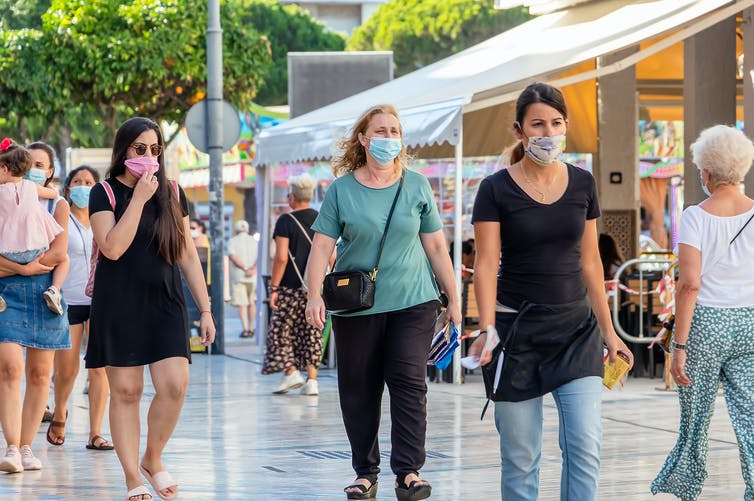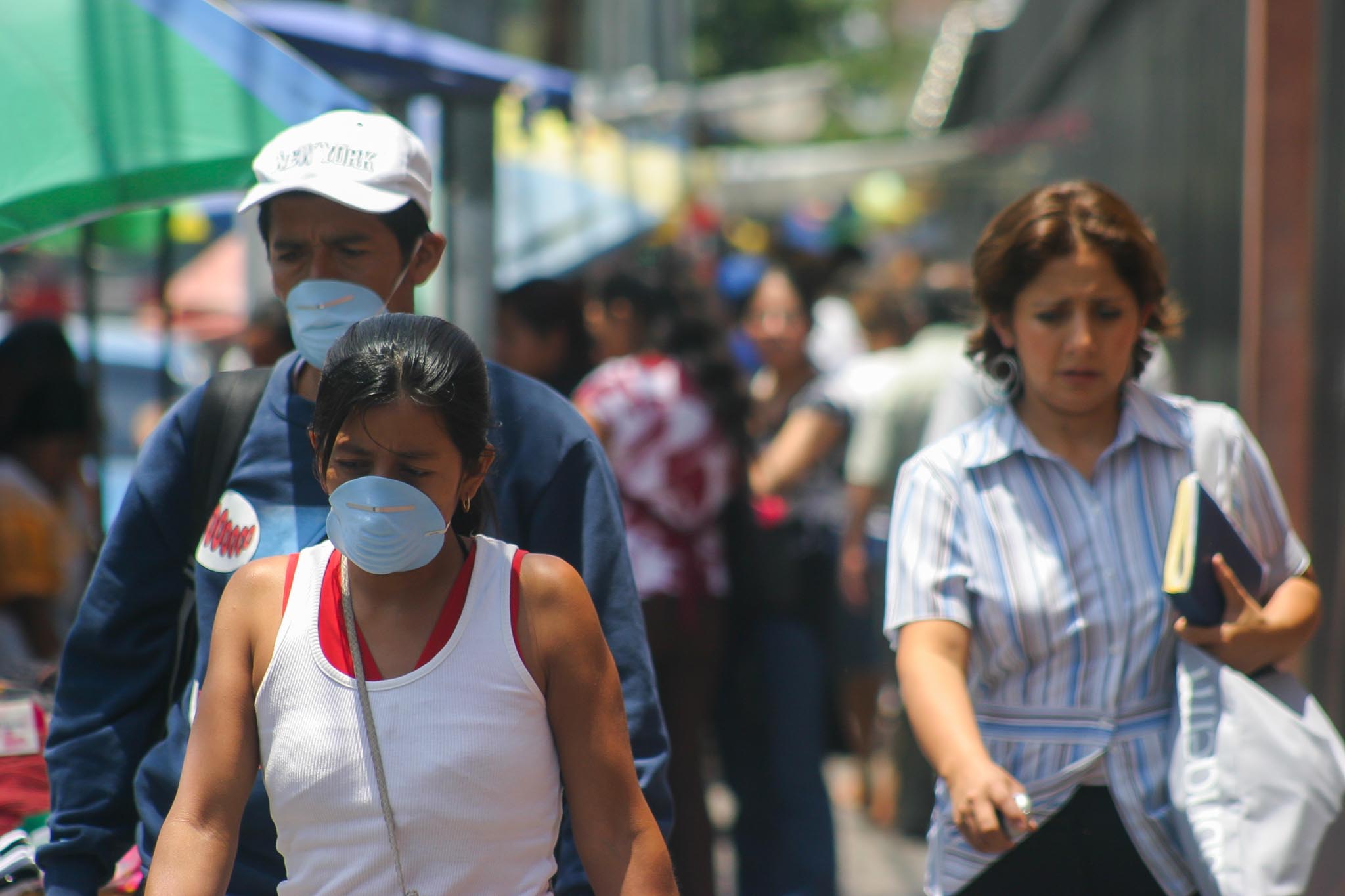Is it an appropriate measure to stop using outdoor masks?
Mª África González Fernández, Universidade de Vigo
At the beginning of the covid-19 pandemic, with the open debate between the use of masks or not, the voice of a renowned Korean expert, Dr. Kim Woo-joo, emerged, who indicated that the use of masks and hygiene are the most effective measures to reduce infections. Kim Woo-joo criticized the initial tepidity of the authorities internationally in imposing one of the most effective measures against infectious agents that are transmitted through the air.
The use of masks was very widespread in operating rooms to avoid infections in patients, and we saw them in images from China to avoid air pollution. In Spain we were not used to using them, and initially people were reluctant to do so. But the obligation led to its use being normalized, and it has clearly been key as a preventive measure of contagion.
Now it is proposed by the Government of Spain to stop using this protection in outdoor areas. Is it an appropriate measure? Is it the right time?
There are several aspects, for and against, from the point of view of the pandemic and the current situation in Spain.
Arguments in favor

The use of masks outdoors is debated with the arrival of vaccines in all parts of the world. Photo: Shutterstock
- Good weather makes people spend more time outdoors, where it has been seen that there is less probability of contagion.
- Vaccination (especially of the most vulnerable personnel) has increased, which means that hospital pressure in the ward and ICU is decreasing.
- The incidence rate of the virus is decreasing, making it more difficult for mass infections to occur.
- The risk of contagion is very low when we are in little crowded outdoor areas (beaches, forests, rural areas).
- The heat, in some regions, makes wearing a mask outside very uncomfortable.
Counterarguments
- The community immunity of 70% has not yet been reached, there is still a lot.
- The young population (18-40 years), which is the one that carries out the most social activities, has not yet been vaccinated.
- There is a possible distribution of new variants (such as the delta or Indian variant) with higher transmission rates. In Britain it is now the majority variant.
- Removing the masks can lead to a relaxation of the measures that other attitudes entail: not respecting a safety distance, hugging, yelling, singing, etc.
- There are urban areas with many people who live in a small space (shopping areas, entry-exit of transport …).
- Influence of tourists and greater mobility of the population.
They should continue to be used in highly populated areas
The removal of outdoor masks indiscriminately throughout Spain should be taken with caution. We should put on the mask when we believe that the situation, even outdoors, requires it, especially in large cities with highly populated areas.
Until we have a higher percentage of vaccinated people, we cannot claim victory. Israel, one of the countries we can emulate, allowed masks to be eliminated (even indoors), except for people who had not been vaccinated, but recently, after having new outbreaks in some areas of the country, it has imposed them again.
It is very possible that the masks remain with us, especially when we go to hospitals or health centers; and if we have colds, we will have to use them so as not to spread it at work or when we move in public transport with many people. We will no longer be surprised to see them.
Let us act with common sense and responsibility. We have come so far, and there is some of the way to go, but now is less left.
Mª África González Fernández, Professor of Immunology. CINBIO (Center for Biomedical Research), University of Vigo., University of Vigo.
Este artículo fue publicado originalmente en The Conversation. Lea el original.
